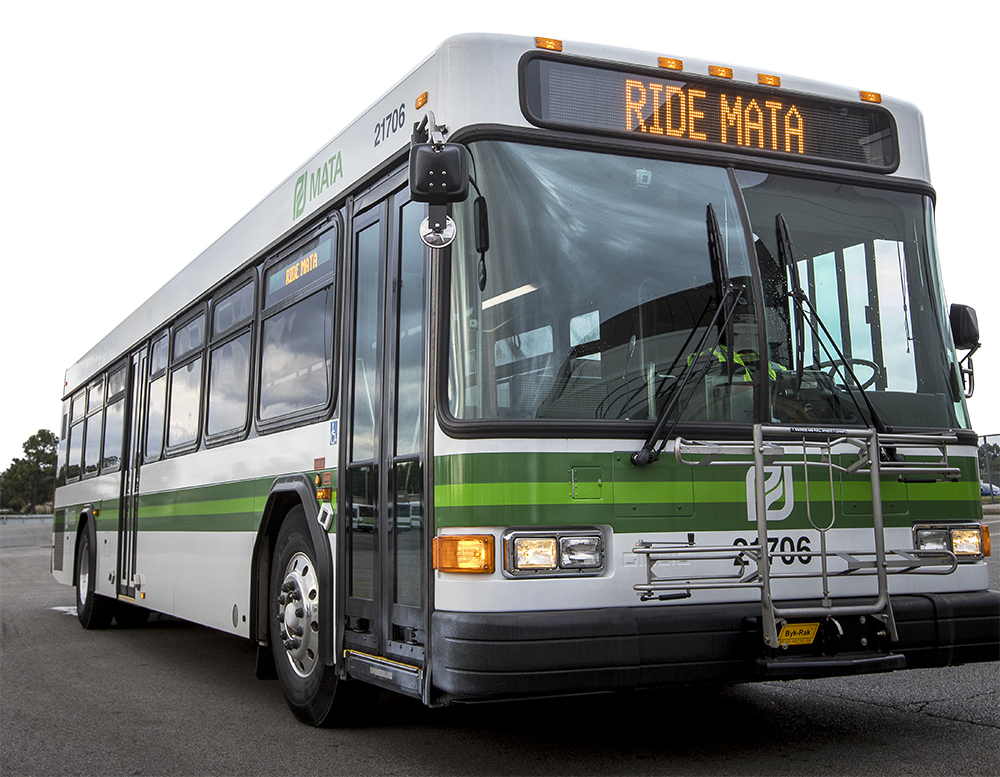Memphis City Councilwoman Yolanda Cooper-Sutton said that the Memphis Area Transit Authority’s (MATA) interim CEO Bacarra Mauldin had been “gifted an issue” and criticized the agency for not asking for help in their budget crisis.
These comments came after officials noted that the agency had been operating in an unrestricted budget deficit for the last 10 years.
“To hear that this is a 10-year-long thing that you all have known about — that you didn’t have enough money and never said anything to anyone is very disturbing,” Cooper-Sutton said. “I don’t think you would run your household for 10 years and no one would say anything.”
Cooper-Sutton went on to call out the organization’s Board of Commissioners for not speaking up as well, and that they should share in accountability for the agency’s financial burdens.
“No one knew there was a deficiency coming down the pipeline? No one?” Cooper-Sutton said. “I’m going to tell you what my spirit is discerning — someone is lying and not telling the truth. You’re not going to tell me that the educated board with all those alphabets behind their name that no one knew and saw this coming for 10 years? It’s unbelievable.”
Mauldin responded saying she remembers being two doors down from her predecessor and had no idea that the agency was facing financial hardship.
“The board didn’t know,” Mauldin said. “From the moment that we gave full visibility over what was happening with the finances, I shared that information with the board and we have as governance partners to try to right this ship. I know that it’s unbelievable, I know that it’s unacceptable but we have done everything in our power to bring this in-line so that we could provide the service this city needs and deserves.”
Today’s meeting follows the passage of the transit authority’s budget for Fiscal Year 2025 which resulted in more than 200 layoffs and the suspension of routes. Riders and community members have openly called on the council to intervene in the agency’s problems. The council had also requested that MATA appear before them every two weeks to provide updates in hopes of increasing transparency.
Mauldin said that her team was “beaten down” and that all they want is to make things right.
“Our goal is to develop a robust transit system that positions Memphis to compete nationally,” Mauldin said. “The city deserves that and we want to give it to the city. We’re committed to providing insights and context necessary to be a part of the solution and help drive the city towards a successful future.”
MATA’s presentation covered their financials, staff optimization, and the steps they plan to take moving forward. Mauldin was joined by external chief financial officer Hamish Davidson, chief of strategic partnerships and programs Erik Stevenson, and chief development officer John Lancaster.
Davidson highlighted that MATAs debt has grown over time due to increased costs and a decrease in ridership and flat funding. He added that the budget affects on-time performance and they are currently operating at a $85 million budget, with a proposed balanced budget of $67.8 million.
“This is not something that occurred in one year,” Davidson said. “This is something that has been continuing for many years.”
According to Davidson, this is something that the media and others had been “lambasting” the agency about, and wanted to note that their deficit wasn’t an annual loss.
The approved budget shows that a majority of MATA’s funding comes through grant revenue ($64 million) with the City of Memphis being its primary funding source at $30 million. The rest of their budget is supplemented by their operating revenue of $3.7 million from passenger fares, advertising, and charters.
Councilwoman Pearl Eva Walker noted that the council’s assessment of MATA’s troubles stemmed from lack of on-going information and updates, as opposed to understanding of finances.
In hopes of adding context to the operational side, Lancaster explained that their problems also stem from their density and size of their service area. MATA covers nearly 300 square miles with a fleet of less than 100 buses. For comparison, Lancaster said they operated more than 300 buses in a little over 100 square miles in the 1970s.
Stevenson said they had to reduce their workforce in order to stay in line with their budget. As a result 18 trolley workers, 29 administrative personnel, and 52 unionized personnel were laid off with 75 eliminated positions.
While the agency presented a PowerPoint in hopes of providing answers, the council was still not pleased with their presentation, prompting several questions and comments from council members. Walker noted that the presentation was very “general.”
Councilwoman Rhonda Logan questioned if employee perks such as employee vehicles had been reduced as the company works to cut down on spending. Mauldin said she would provide the council with a detailed list of these things, including the context in which they exist.
